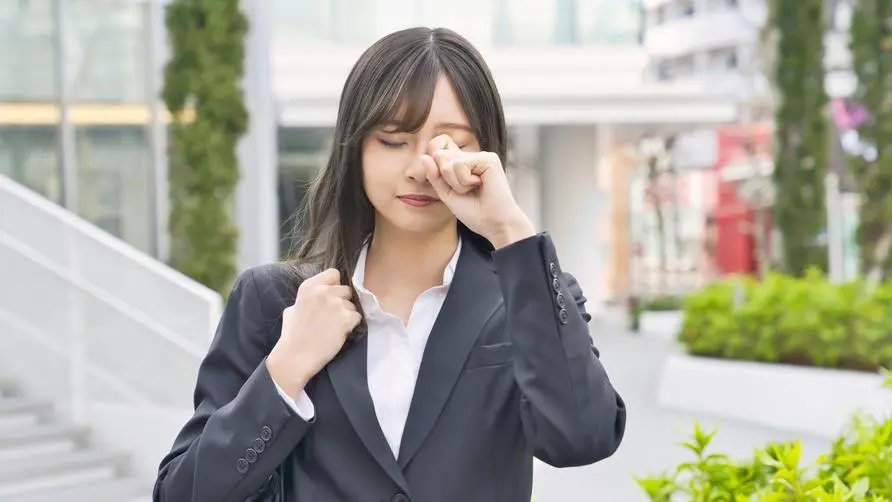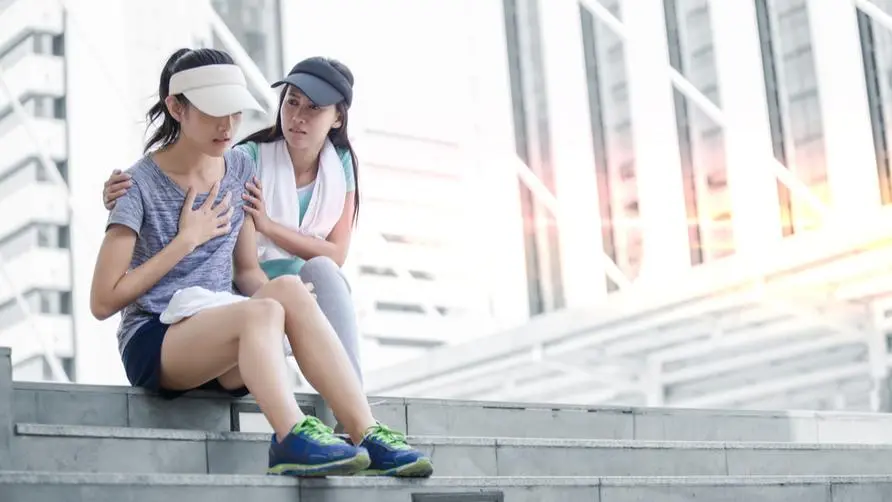Even if you're not playing mobile games and watching Korean dramas, your eyes are still wet? Doctor: Be careful, it may be a precursor to COVID-19!

COVID-19 has been raging around the world for a year and a half, and its well-known side effects are inseparable from symptoms such as fever, cough, abnormal sense of smell and taste, and fatigue. As humans learn more about COVID-19 and the types of mutant viruses become more diverse, the symptoms of the epidemic will increase or differ. Now, according to joint research by the World Health Organization and countries around the world, “dry eye syndrome” may also be one of the symptoms of confirmed COVID-19, especially among middle-aged and elderly people over 50 years old.
The virus enters through the eyes and patients need to be careful about the risks of dry eyes and photophobia
Intensivist Huang Xuan said that according to statistics from the American Academy of Ophthalmology, about 4.9 million people over the age of 50 in the United States suffer from dry eye syndrome. However, researchers found that people diagnosed with COVID-19 appeared to suffer from dry eye syndrome more frequently than those who did not have COVID-19. Although dry eye syndrome is not one of the most common symptoms of COVID-19, COVID-19 may indeed cause eye discomfort.
Dr. Huang Xuan further explained based on the above-mentioned World Health Organization research that the “eye” symptoms caused by COVID-19 include dry eyes, red, swollen and itchy eyes, conjunctival congestion, photophobia, etc. Patients with COVID-19 who develop the above-mentioned eye symptoms, 88.8% had “conjunctival inflammation”; and 81% of COVID-19 patients had symptoms related to eye discomfort within 2 weeks of the onset of common symptoms (such as cough, loss of smell and taste), and Its duration is less than 2 weeks.
Why is COVID-19 related to eye symptoms? Dr. Huang Xuan explained that because there is a membrane protein in the human body called “ACE2”, the new coronavirus enters the human body through the ACE2 channel. According to a study in the British Medical Journal, scientists have already detected the presence of ACE2 in the epithelial cells of the eye mucosa, so the virus can take advantage of it and enter through the eyes.
Eyes may become infected. Wear goggles when going out and do not rub your eyes.
In addition, the “immune storm” caused by the excessive production of immune mechanisms due to the invasion of the new coronavirus will cause inflammation throughout the body, and patients will also feel dry eyes. Wearing a mask causes the exhaled carbon dioxide to move to the upper part of the face, which over time will Accelerate the evaporation of water in the eyes, which may also lead to dry eye syndrome. However, one of the culprits of dry eye disease is the pandemic. People rely on electronic products for work and social interaction. The time they spend has increased significantly. Staring at the blue light of the screen for a long time will slow down the blinking speed, make the eyes sore, and lead to dry eye disease. The chance of getting sick increases as a result.
Dr. Huang Xuan suggested that if you experience typical cough, fever, fatigue, etc., accompanied by mild eye discomfort, you must first call the 1922 hotline and follow the instructions to seek medical treatment; in addition, 80% of COVID-19 patients have mild symptoms. At this time, you should not take it lightly. If you experience a slight cough or muscle soreness, or your eyes are sore, you must first dial 1922 to cooperate with the relevant units for treatment. As for asymptomatic people who experience eye discomfort, they should go to an eye clinic for examination first to see if there are other symptoms.
Based on the above, in addition to the mouth and nose being the main infection routes of the new coronavirus, the eyes may also be the entry point for the virus to invade. Therefore, in addition to wearing masks, people can also wear goggles or anti-viral plastic sheets when going out. Avoid rubbing your eyes without washing your hands or eliminating the possibility of viruses entering the body from the eyes. “The epidemic is not over yet, and we still need to work hard to prevent it.” People must not take the virus lightly, take precautions if they can, and stay vigilant at all times to avoid the risk of diagnosis.
source:
Sore eyes reported as most significant ocular symptoms of covid-19
Ocular Manifestations of COVID-19: A Systematic Review and Meta-analysis
“COVID19 Eyes: Soreness, Astringency, and Pain” - Dr. Huang Xuan





